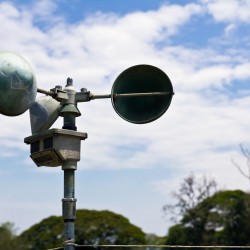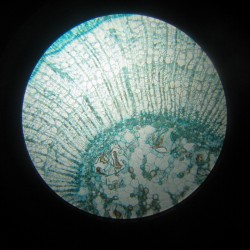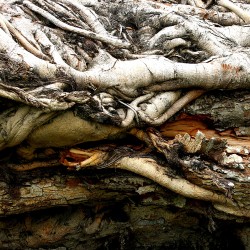Ordering Biological Science Supplies

Whether it is for the lab setting in a work place, or whether you are a biological sciences major and need supplies to use in the lab during your classes, you have to know where to order the best biological science supplies and kits from. No matter what it is that you will need, or where they are going to be put it to use, you have to purchase the very best quality, and the most affordable supplies, regardless of what you plan on using them for, or where they will be put to use each day.
Before ordering the biological science supplies you must consider:
- where you can find kits, based on the type of work you do and supplies you need, or based on the type of class you are taking, and the tools you have to learn how to use;
- where you can order a variety of kits or supplies individually, depending on what you need personally;
- where you can find industrial strength and quality supplies to use; and,
- where you can find the lowest price for the supplies and toosl you have to buy, whether they are used in a work situation each day, or whether they will eventually be used by a student who is learning how to use this equipment, in a lab type setting in one of the many classes that are being taken by a student.
There are many suppliers that specifically target schools, and will provide them with a number of different supplies for students to use in a lab setting. So, as the head of the science department in a university, or local college, the individual ordering is going to have to find these suppliers, and you have to take the time to find the type of biological science supplies they offer, so that you can find just what is needed for each class, and of course to find the best quality supplies to teach students with in the classroom setting, for the most affordable prices when the time comes to place th eorder for the necessary supplies.
Regardless of what is being taught, what lesson a student is learning, or what kind of supplies that will be needed in any type of classroom setting, there are a number of places to order, and even more variety of supplies to choose from, if you order from the right online suppliers. No matter what is needed, or what the budget is for ordering supplies, there are a number of places to turn to when the time comes to place the order.
As the head of the ordering department in a university setting, or with a lab that uses these supplies, it is important to find out where you can get the best quality biological science supplies, and the lowest priced supplies, to ensure you do find the very best deals, on the items that will be put to use on a daily basis by students and by any professionals in the work place.
What Is Biological Science?

Biological science is the study of living organisms such as plants, animals, as well as human beings and how they narrate to the environment. The roles of biological science encompass learning how life processes work and then using this knowledge to developmental processes and also creating new products. Many people will specialize in a specific area of study, like zoology or microbiology. Biological science has a great impact on our lives and also stands to have a greater impact in the future generation.
Biological science is categorized into several branches and sub-branches like: Botany, Zoology, Histology, Human anatomy, Ecology, Entomology, Mycology amongst others. Every sub-branch may consist of more specific areas of study. Natural science for instance is a branch of biology that is categorized into various sub branches, each one of them focusing on a particular aspect of study. Natural science consists of several branches like chemistry, biology and physics. The subject provides knowledge of the various life processes that it has assembled through researches and experimentations.
The experimentation conducted with the aim of acquiring knowledge can be categorized into 2 types: applied and basic research. Basic research creates the groundwork needed for applied research that jointly is intended to seek solutions for a certain problem. Basic research can greatly help expand the knowledge of the leaner as it offers information regarding living organisms that can be applied to cure various ailments. On the other hand, applied research focuses on developing products that are aimed at producing drugs, bio fuels, etc.
What is life? What kinds of organisms are alive? These questions seem very easy at first. We all know how to identify what is alive and what is not. For instance, is a virus dead or alive? Since biological science covers such a wide area, it is divided into several branches or disciplines. These disciplines are divided based upon the kind of organism one is studying. For instance, botany which is the scientific study of plants is separated from zoology which is the scientific study of animals and ecology which is the scientific study of organisms. The study of human body is the largest and most vital field of biological science.
Biological science is among the major branches of scientific study. Science may be easy and only about being acquainted with the world. Nonetheless, not a single scientist can be able to study each aspect of the world and the many areas of science can make it overwhelming if it isn’t divided into related categories. Categories like life science enable scientists to focus on similar subjects and interact with others who are also interested in similar topics and make science simpler to understand.
Studying biological sciences can be extremely rewarding and even exciting as it teaches us to make observations, solve various problems and evaluate evidence in all aspects of our lives. Biologists also learn how organisms work, how they came into existence as well as how they relate to each other. They study miniature cells under the microscope, plants, wild life in grasslands as well as factors that affect human health.
Explore Life With Biological Sciences

A lot of people, upon hearing the word “biology”, start to make up some uncertain and bizarre thoughts about it. You are probably one of those people who resent the thought of making Biological Science as you major, primarily because you think that it would just drive you crazy knowing that it involves a lot of complex science ideas.
But that idea is absolutely senseless. In this article, you will learn more about sciences involved in Biology and why you should consider College of Biological Science as a path to your career.
Basics of Biological Science
When you decide to take up Biological Science as your major, it is essential that you equip yourself with the basics involved in it.
Biological Science is basically a field of natural sciences that primarily deals with living organisms and their interaction within the environment. But that does not end there. Within that description involves the diverse processes that are essential to maintain the survival of these living organism, most importantly us, humans.
Biological Science, being under an interdisciplinary field, is expected to work with a lot of branches of science particularly Biomedicine, Zoology, Ecology, Botany, Agriculture and even Veterinary Science.
Major Description
A lot of universities and colleges all over the world are offering Biological Science as one of their majors. This is done to cater students who share an enthusiastic passion of understanding the living world.
To successfully acquire a degree in Biological Science, you must complete the requirement and courses offered in the general curriculum. Normally, a student from College of Biological Science should spend a minimum of four years to successfully finish the course.
The curriculum offered in Biological Science is intended to cover the field of Biology as well as other science related fields such as Chemistry, Physics, and even the most feared subject—Mathematics.
Biological Science offers a variety of curriculum that interested students can choose from. Each curriculum is intended to provide students the best subjects that would perfectly fit their career goals. While it is true that considering Biological Science as your major can be quite challenging, this demanding situation will only help you to become more prepared and be equipped with sufficient knowledge that you will need once you are already on your own exploring the real living world.
Career Options
Certain skills will be developed on you once you have successfully survived College of Biological Science. Apart from gaining Biology practical knowledge, you will also be able to develop some technical skills in operating scientific equipment.
Availability of related careers is one of the factors why most people are taking up Biological Science as their major. Apart from that, these careers are sure to provide you with hands on experience where in you can really apply all the skills that you have learned.
Some of the popular careers after entering College of Biological Science are Biology teacher, laboratory technician, technical writer and research assistant. You can also help your government in the maintenance of ecology as a conservationist. And by gaining some advanced degrees, you can also be a medical doctor and even a research scientist.
Biological Science is indeed a great course that shows great potential in providing you a promising career in the future.
Some Great Biological Science Projects

Biological science projects can be a great way for someone of any age to learn some interesting things about an intriguing field. Because biology is such a broad field, there are a multitude of projects that you can undertake in order to learn about biology. Below are some ideas that can be used for science class, a science fair, or even just for some interesting fun!
Exploring the ripening of fruit
The ripening of fruit is a common biological process that can be easily explored. We’re all familiar with what happens as fruit ripens – it gets much more delicious! But you may not be aware of why it happens. There are a group of enzymes in fruit that are activated by a gas called ethylene. Ethylene is produced any time a fruit is wounded, and picking a fruit can cause the release of the gas to begin. Ethylene activates hormones that make a fruit achieve the color and taste it is well-known for.
The ripening process can be delayed, however, and this is what could make an interesting science project: exploring the ways to affect fruit ripening, and understanding why they work. For example, if you want to slow the process you can refrigerate the fruit (cooling slows almost any biological process). But, you can also speed up the process. By putting the fruit in a paper bag and adding another ripening fruit (especially a banana, which emits a great deal of ethylene), you can speed up the process. Experimenting with these variables can help someone understand about enzymes, the factors affecting biological processes, and fruit in general!
Insects and light or heat
Another interesting experiment involves investigating whether insects are attracted to artificial lights due to the light they emit, or the heat. During the day, most insects use the sun as a navigation tool. However, now that there are many artificial lights around at night, insects get pretty confused. The sun stays in one place during the day, so an insect can use it as a grounding point. However, when it flies past an artificial light, the light moves in relation to the insect. This causes them to fly in circles around it. Eventually they will run smack into it.
You can do an experiment to test whether insects are attracted to light or heat by setting up a dark room with a light bulb and an artificial heat source (e.g. an electric space heater). As long as you have a few insects in the room with you, you’ll be set. Watch which object the insects are attracted to. My money is on the light, and you’ll soon be able to affirm that insects are attracted to light, not heat.
Biological science projects can provide someone with hands-on experience and a very educational one at that. They allow people of any age to learn in a way that really implants the knowledge in their mind. They can be great for science fairs, or just for a way to spend any old weekend!
Biological Science News Will Continue to Amaze

Anyone who follows current biological science news will know that the discoveries that come out of the biological fields become more amazing on a daily basis. As scientific methodologies become more refined, scientists are able to manipulate even the most detailed biological processes. Eventually, this will allow them to understand complex diseases and hopefully find cures for them.
Nanomedicine
One of the most astounding fields of biological science nowadays is that of nanomedicine. Nanomedicine involves applying nanotechnology to biological processes. Nanotechnology involves working with matter on the scale of atoms or molecules – in other words: very small. Applications of nanomedicine involve finding ways to deliver drugs that make them more available to the body. For example, by using nanoengineering, a drug can be targeted to a specific molecular target and delivered there with precision. This is far more efficient than the current method of getting a drug into the bloodstream then just hoping it reaches its target.
Nanoparticles can also be used, however, to directly target problematic areas in the body like blood clots or cancer tumors. Recently, researchers at Harvard University used drug-coated nanoparticles to dissolve blood clots. Other researchers at Case Western Reserve University used nanoparticles to deliver an anti-cancer drug to breast cancer tumor cells. With the use of nanomedicine, diseases like cancer and heart disease may one day be a thing of the past.
Animal Models
Biological scientists are also developing more accurate animal models of human disease. A good example of this is work being done with mouse models of Alzheimer’s disease. Scientists can use genetic engineering to create mice that have particular variants of human genes. In the case of Alzheimer’s disease, they were able to engineer mice with a gene that gives humans a 15 times increased risk of Alzheimer’s disease. The engineered mouse has the genetics of humans who have the disease, and also displays symptoms that resemble the human disease.
Animal models like this are an important step forward in understanding and treating diseases like Alzheimer’s. Perhaps most importantly, they provide scientists with a model of the disease in an organism they can test drugs on (something which they can’t do ethically in humans until they’ve shown the drugs to be safe). It also allows them to study changes in brain and body chemistry as the disease progresses, giving them more information about how a disease like Alzheimer’s develops.
Nanomedicine and animal models are just two of the myriad ways biological scientists are becoming more adept at understanding and treating human diseases. The knowledge contained in a field like biology grows exponentially with every year that passes. This allows scientists to have very ambitious plans for the near future when it comes to the management of human conditions that only 20 years ago might have seemed impossible to manage.
If you look only at the state of medicine 50 years ago, it is astounding to see how far we have come. It is staggering to think what could occur in the next 25 or 50 years. Biological science is one field that has an impact on all of our lives.
